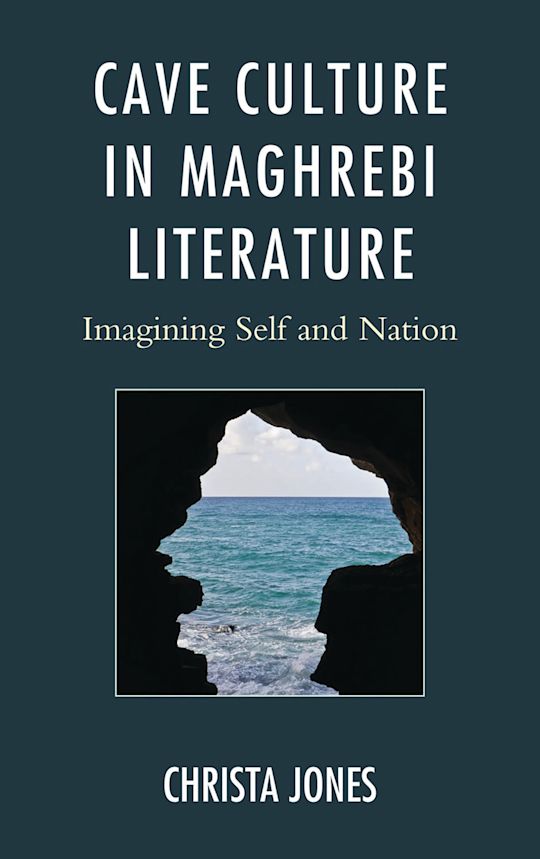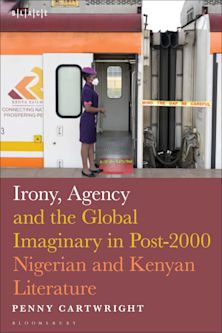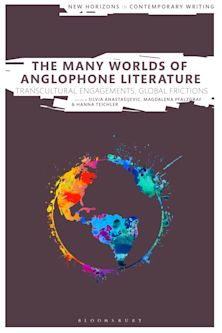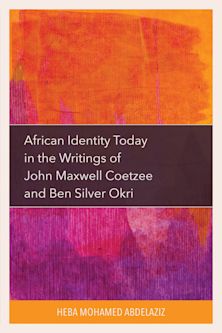- Home
- ACADEMIC
- Literary Studies
- African Literature
- Cave Culture in Maghrebi Literature
This product is usually dispatched within 2-4 weeks
- Delivery and returns info
-
Flat rate of $10.00 for shipping anywhere in Australia
You must sign in to add this item to your wishlist. Please sign in or create an account
Description
Cave Culture in Maghrebi Literature: Imagining Self and Nation discusses key postcolonial Francophone North African texts, centering on folktales, war, Berber traditions, femininity, sexuality, the Algerian War of Independence (1954–1962), and the Algerian Civil War (1992–1999). It explores the literary and cultural evidence testifying to the role of the cave as a locus of worship, transfiguration, dominance, and revelation in the context of colonial and postcolonial power struggles, and its wider significance in the context of nationalism and femininity, sexuality, and postcolonial identity construction. Historically, the cave has symbolized the explosive colonial and postcolonial struggles. It was a crucial site of colonial subjugation in North Africa during the colonial conquest in the nineteenthcentury and during the Algerian War of Independence in the twentieth century. Featuring narratives by authors such as Yamina Méchakra, Georges Buis, Tahar Ben Jelloun, Maïssa Bey, Assia Djebar, Driss Chraïbi, Hawa Djabali, Mohammed Dib, Nabile Farès, Larêej Waciny, and filmmaker Moumen Smihi, this book examines the cave as a metaphor of the collective imaginary of the North African literary subject and offers new insights into the field of Francophone literary studies. The complexity of the cave metaphor in this body of literature mirrors the struggle for identity at work in Francophone postcolonial literature: be it the struggle for colonial independence, the articulation of femininity, or, in a broader framework, the tensions at work in hybridized societies that are firmly rooted in tradition but at the same time curiously turned toward the Occident. Literary caves are firmly situated in the physical and psychic territories of North Africa, yet they offer bridges to the West and in particular to continental France. A combination of religious mysticism and natural splendor makes the cave a powerful symbol that has had a profound impact on the imaginations of artists on both sides of the Mediterranean. The literary cave has a strong hold on the Algerian and Moroccan collective imaginary and often stands as a metaphor for the homeland: the patrie. It defines the characters’ subjectivity, on both a conscious and unconscious level—as shown by its many literary manifestations, be it in folktales, feminist, war, or love narratives.
Table of Contents
Chapter One: Sites of Wonders and Miracles: The Cave in Kabylian Folktales
The Cave in Islam and the Legend of the Seven Sleepers
Tales of Wonder and Magic: Metamorphoses in Troglodytic Caves “Zalghoum, la belle promise,” “Loundja, plus belle que la lune,” and “Fibule d’argent
Places of Transfiguration, Female Disobedience, and Emancipation "L’oiseau vert,” “Une histoire d’ogre,” and “Histoire de l’ogre et de la belle femme,”
Rites of Passage, Gateways to Happiness, Insight, and Maturation “La bague enchantée,” Pépé Colosso,” “Ahmed, fils de bûcheron,” and “Chrab Dekhane”
Of Treasures, Divination, and Hideous Crimes “Attiallah,” “Ali Baba and the Forty Thieves,” “La caverne des Djinns,” and “Tout secret se trouve un jour dévoilé”
Chapter Two: Wo(men) in Caverns, Wo(men) at War: The War Novels
Death traps in Djebar’s Fantasia and in Bey’s Pierre sang papier ou cendre
The Involvement of Moudjahidates—Myth versus Reality
Resisting War: Yamina Méchakra’s La grotte éclatée
Crushing the Rebels’ Resistance - Georges Buis’s La grotte
Clearly Out of Luck: Nabile Farès’ Yahia, pas de chance
From one War to Another: Waciny Larêej’s La gardienne des ombres
Chapter Three: Country vs. City: Of Troglodytes, Peasants, Drifters, and Women
Of Troglodytes and Tradition: Driss Chraïbi’s Une enquête au pays
Awakening Femininity: Hawa Djabali’s Glaise rouge
Discovering Femininity: Hawa Djabali’s Agave
Moumen Smihi’s El Chergui, Vent de l’est ou le silence violent
Mohammed Dib’s Qui se souvient de la mer
Mohamed Choukri’s Le pain nu
Chapter Four: Of Sexuality, Desire, and Madness in Tahar Ben Jelloun’s Texts
Deviant Sexualities: From Harrouda to L’enfant de sable
The Madman: Moha le fou, Moha le sage
Ben Jelloun’s La fiancée de l’eau, a Feminist Play
Unbridled Sexuality, Desire, and Dream Culture in La nuit de l’erreur
Afterword
Product details
| Published | 27 Sep 2012 |
|---|---|
| Format | Hardback |
| Edition | 1st |
| Extent | 214 |
| ISBN | 9780739168752 |
| Imprint | Lexington Books |
| Dimensions | 234 x 159 mm |
| Series | After the Empire: The Francophone World and Postcolonial France |
| Publisher | Bloomsbury Publishing |
About the contributors
Reviews
-
Jones (French, Utah State Univ.) highlights the importance of the cave and cave imagery in Maghrebi culture and the pervasive presence of the cave in Francophone literature from the region. Taking as source texts works by major Francophone North African writers (Mohammed Dib, Tahar Ben Jelloun, Assia Djebar, and others) and filmmakers (Moumen Smihi), the author traces the longevity of cave imagery through its presence in Islamic and pre-Islamic oral traditions, as evidenced in the folktales that are also among the primary sources for this study. Jones seems to have anticipated that this study of the cave as symbol and metaphor might interest readers with little prior knowledge of Francophone North African literature and/or the recent history of the region because she includes a great deal of such background information in the text. She succeeds in demonstrating the multifaceted role of the cave as a literary motif and its symbolic value in imagining the nation and national identity. Summing Up: Recommended. Graduate students, researchers, faculty.
Choice Reviews
-
Both within and beyond the landscape of North Africa, the cave represents more than its geographical characteristics in its literary and cultural production. In this truly original work, Christa Jones invites the reader to envision the cave both thematically and symbolically through North African folktales and francophone literature. Using both well known (Tahar Ben Jelloun’s work) and lesser known (popular folktales) literary representations, she examines the cave across national boundaries and across genres, providing a new perspective on the rich cultural and literary history of the region.
Pamela A. Pears, Washington College



































